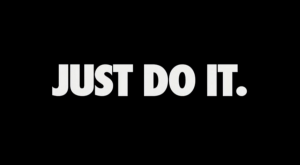I recently came across an article in the Vancouver Sun from last summer as I was doing research on possible housing for myself next year when I am not able to live on residence. The article focuses on the extremely tight and high priced rental housing market in Vancouver which has “grown dramatically” in recent years. The city of Vancouver is aware of the unhealthy 1.9% vacancy rate (a vacancy rate in a healthy market would be around 5%) and plans to build more rental housing to reduce the problem but many realtors, such as Mark Goodman, say it is “still not adequate”.
This issue effects me as well as most other UBC students greatly as we are dependent on finding affordable and available rental housing in the UBC area which is just as tight of a market as the rest of Vancouver. I think that it is UBC’s responsibility as well as in their best interest to build more residences and rental units on campus to accommodate the large number of students that they accept into their university every year. At the moment, the high rental prices is likely restricting many people from being able to study at the University as they cannot afford a place to live. This should concern UBC as it means that their incoming students may not be the “best” or most intellectual but may just be the richest kids that can afford to live in the area around the university. This will effect UBC’s overall prestigious reputation and diminish their point of difference that they have against competing universities across Canada.
Picture source: http://blog.besthomesbc.com/2012/02/
Vancouver Sun article: http://www.vancouversun.com/business/Barbara+Yaffe+Vancouver+high+house+costs+heat+rental+market/10076227/story.html


 ir products were superior to their competitor’s products. I find it amazing just how far a strong brand name can take a company. Thinking back to Porter’s generic strategies and his theory that a firms strengths fall into either a cost leadership or differentiation strategy, I started to question if Nike falls into one of these categories. Other than the power of branding and advertising that Nike has, they do not have a particular cost or differentiation advantage in the industry. Their products are often more expensive than competing companies products such as Adidas or Reebok and although Nike does have some new technology and slight differentiation to their products, they really aren’t that unique. As Jason said, “Nike has a strong image that psychologically draws people to them” and I believe this is their main advantage and reason for their success.
ir products were superior to their competitor’s products. I find it amazing just how far a strong brand name can take a company. Thinking back to Porter’s generic strategies and his theory that a firms strengths fall into either a cost leadership or differentiation strategy, I started to question if Nike falls into one of these categories. Other than the power of branding and advertising that Nike has, they do not have a particular cost or differentiation advantage in the industry. Their products are often more expensive than competing companies products such as Adidas or Reebok and although Nike does have some new technology and slight differentiation to their products, they really aren’t that unique. As Jason said, “Nike has a strong image that psychologically draws people to them” and I believe this is their main advantage and reason for their success.